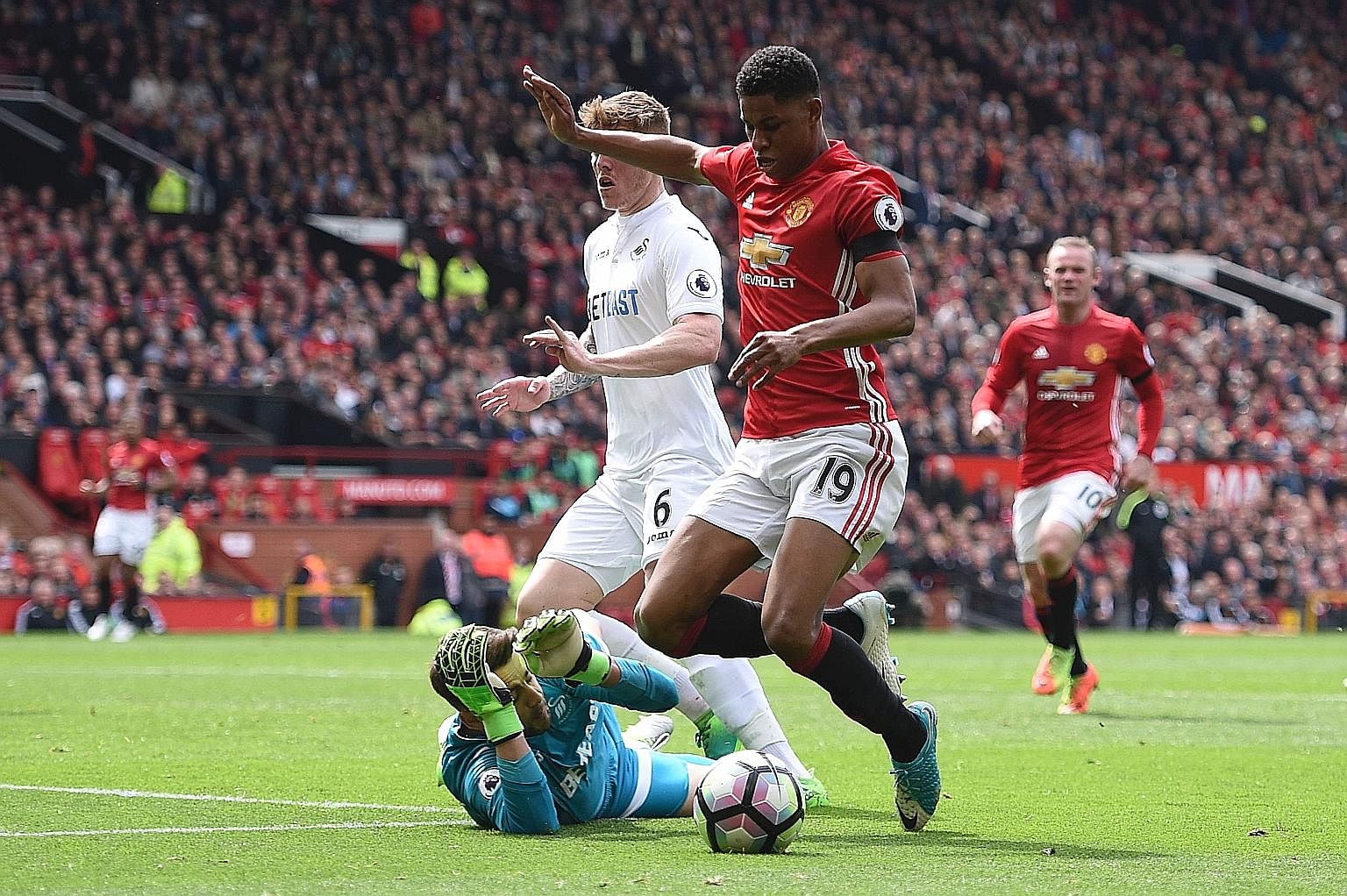Simulation Sunday, as the broadcasters should have called it, highlighted again why Video Assistant Referees (VARs) represent the law-enforcement cavalry who cannot gallop into view quickly enough.
Marcus Rashford and Leroy Sane dived to win penalties at Old Trafford and the Riverside respectively, and football immediately dissolved into claim, counter-claim and name-calling.
VARs will not only raise the standard of decision-making but also lift the level of debate.
Screens would pre-empt smokescreens. Managers couldn't use errant decisions as excuses, pouring blame on the referees when their tactics, substitutions and player fallibilities should be held more properly to account.
Players would instantly be shamed or cleared by the VAR. Rashford and Sane would have been cautioned and a free kick given against them, rather than a penalty for them.
Harry Kane would not have had to deal with the accusation of cheating from Arsene Wenger, who insisted that the Spurs striker took a fall at the Lane. Michael Oliver was spot on in punishing Gabriel, whose right foot caught Kane's right shin, and his appraisal would have been immediately supported by the fifth official.

VARs will not be perfect but will largely stop referees making the wrong calls and also underline their judgment when correct, strengthening their authority.
Instead, Wenger's "dive" argument was a classic trick of diverting attention from his team's impoverished performance.
Arsenal's manager did partly address his team's inferiority to Spurs but the "dive" suggestion was too emotive a word, and strong an allegation, not to dominate the headlines. VAR verdicts would mean managers face up to facts more, rather than hide behind others' mistakes.
Coverage of English football has become more analytical in recent years, improved by technology and the eloquent punditry of former professionals such as Gary Neville and Graeme Souness. Any development that further encourages English football to have a more grown-up conversation is to be welcomed.
Diving is cheating. It enrages the victims and neutrals alike. It makes other sports go smug. It is embarrassing when one of the finest young talents in the country, Manchester United's Rashford, resorts to such antics.
"The replays showed the player deceived the referee," said Paul Clement, Swansea's manager.
VARs would have caught it, and potentially persuaded Rashford into resisting a repeat. A reputation easily acquired can be difficult to shift. VARs could do Rashford a long-term favour.
Over at the Riverside, Manchester City's Sane ran into Middlesbrough's Marten de Roon, instigating the contact, and the referee Kevin Friend fell for it.
The outraged reaction from Middlesbrough's players said it all, and they were fortunate that Ben Gibson, their captain, showed his leadership skills, shepherding them away from the ref. Their caretaker, Steve Agnew, said afterwards that Sane "went down very, very easily".
Too many of the footballing inquests are being consumed by events that could be clarified and solved during the game.
Michael Owen, speaking on BT Sport on Sunday, reiterated his contention that attackers have every right to respond to challenges by collapsing their legs, limiting damaging impact. Owen suffered too many injuries, but too many players still look to exploit goalkeepers' legitimate attempts to target the ball.
Players are partly reacting theatrically to signal contact to referees. Others argue that honesty doesn't always pay. Some are being punished for staying on their feet. If no advantage is gained, a good referee would take the move back, and award the penalty.
Sadly, this is not a great crop of referees and they are having to confront a game speeding up and players stooping lower. Roll on VARs.
THE TIMES, LONDON
